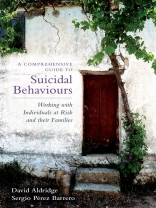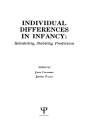Over a million people commit suicide worldwide every year. Taking an interdisciplinary approach that looks at the person at risk, the family and personal relationships they have and the communities in which they are embedded, this book will help anyone working with suicidal individuals to prevent this major cause of death.
Backed up by research and clinical expertise the book clarifies the facts about suicide and debunks the many unfounded myths surrounding the subject. It covers the classifications and manifestations of suicide, as well as the major risk factors, at-risk groups and warning signs. Advice on effective communication and a repertoire of strategies for distress management are offered, not only for supporting at-risk individuals and those who have survived a suicide attempt, but also families coping with bereavement. A final chapter explores the impact of the internet and the digital age on both the propagation and prevention of suicide.
This book will be essential reading for anybody working with people at risk of suicide, including clinicians, therapists, psychologists, social and healthcare workers and volunteers working in suicide prevention.
Содержание
1. Introduction; the individual in a process of escalating distress. 2. Suicidal behaviour in a historical context. 3. Classifications of suicide. 4. Myths about suicide. 5. Talking about suicidal ideas. 6. Suicide risk groups. 7. Protective factors in suicidal behaviour. 8. Family problems. 9. The survivor and complicated grief. 10. Psychotherapy for suicidal people in crisis. 11. The Internet: new possibilities, problems and challenges in the prevention of suicide. 12. Recommendations for a suicide prevention strategy. Appendix 1. A model of the systemic management of distress. Appendix 2. Glossary of terms. Useful reading.
Об авторе
David Aldridge is a social science researcher and the author of many books including Suicide: The Tragedy of Hopelessness also published by Jessica Kingsley Publishers based upon his doctoral thesis at the Open University, UK. He is also a Fellow of the Royal Society of Medicine, London. Sergio Pérez Barrero graduated as a Doctor of Medicine from the University of Havana in 1976. He is a Professor of Psychiatry and founder of the Suicidology Section in the World Psychiatry Association (WPA).












